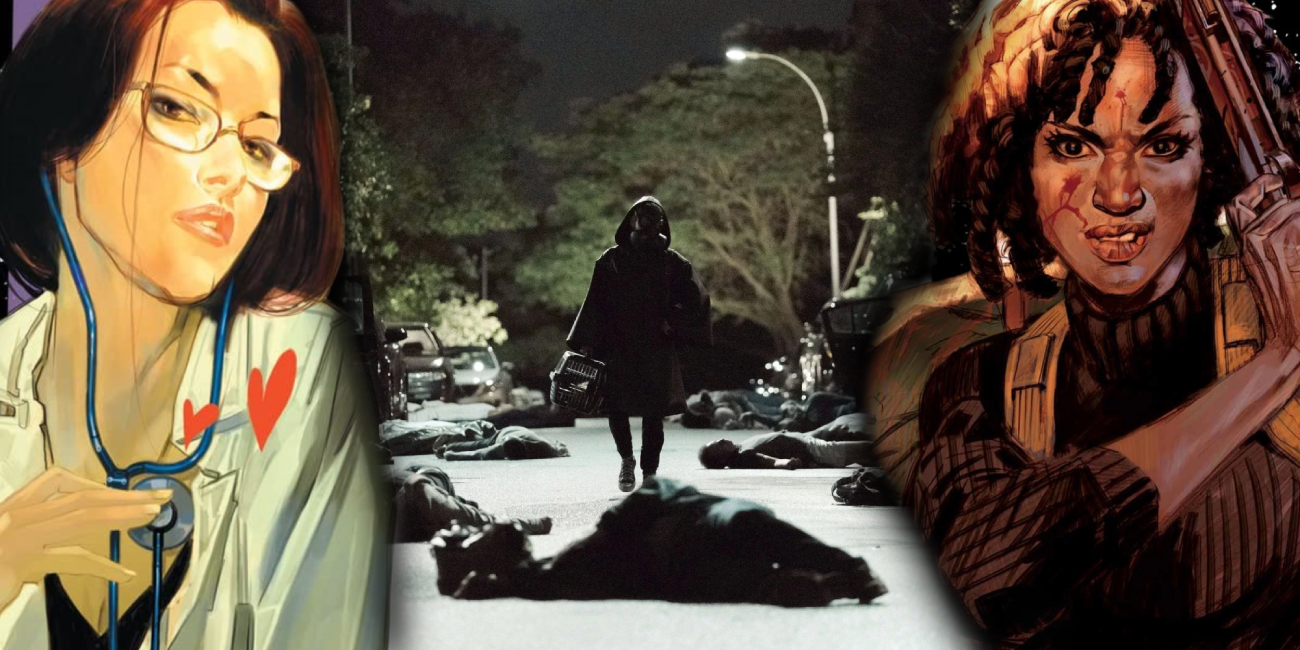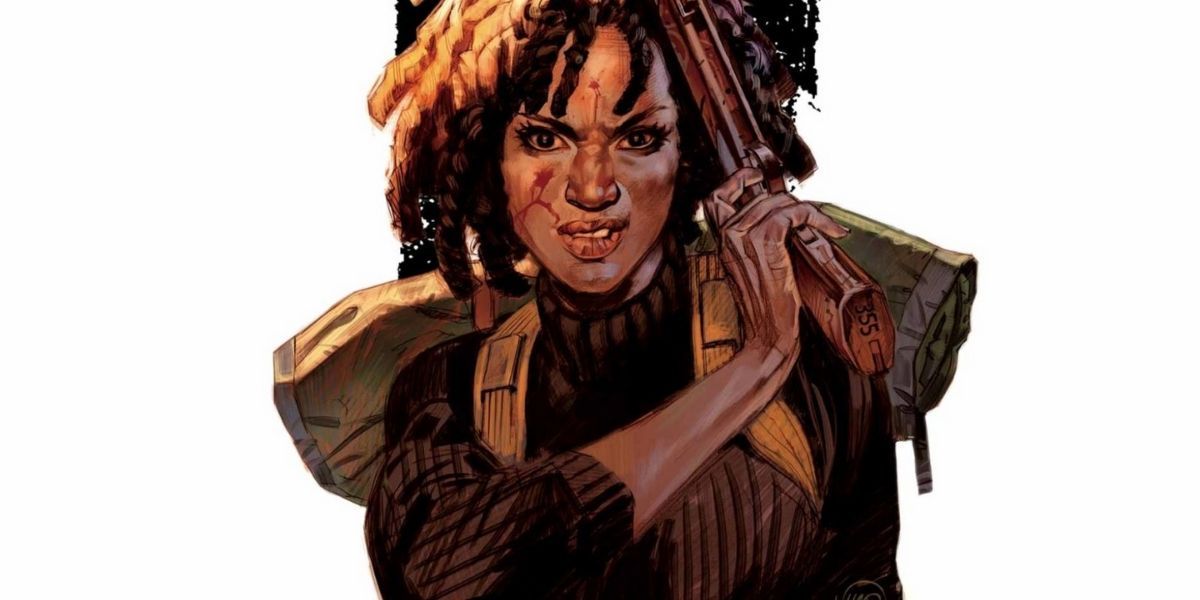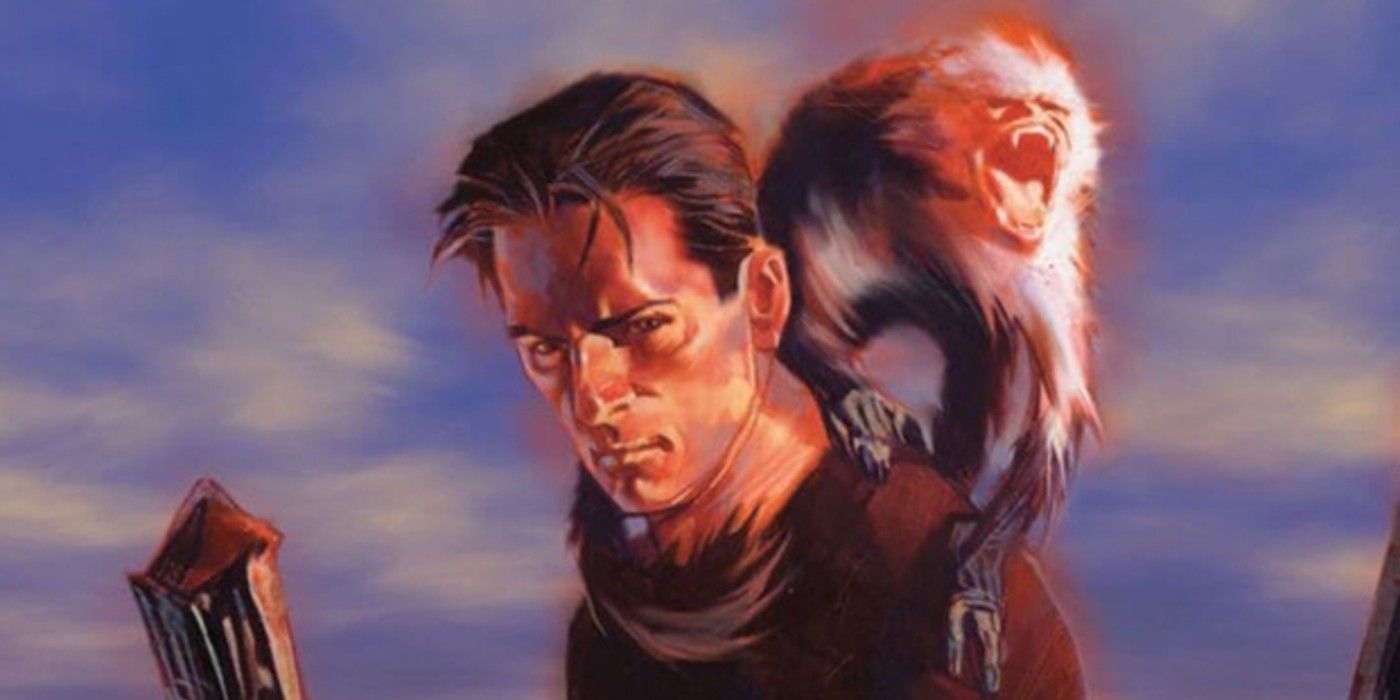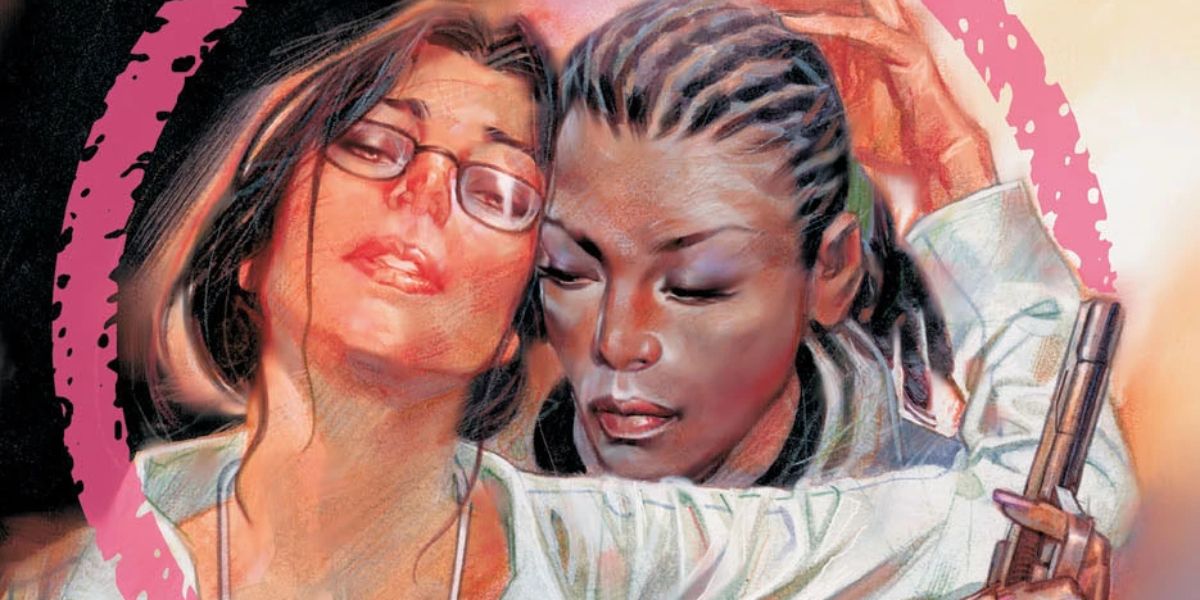
For the past decade, the undisputed king of post-apocalyptic comic book television has been AMC’s The Walking Dead. Based on the Image Comics series of the same name by Robert Kirkman, Tony Moore and Charlie Adlard, The Walking Dead premiered in 2010, when zombies were one of the biggest things in pop culture after seeing a massive resurgence a few years earlier. The show was naturally a huge hit, drawing viewers in numbers that most networks would kill for. However, with declining ratings, major cast members leaving and increased scrutiny from fans, it’s safe to say The Walking Dead‘s glory days are over. Fortunately, the perfect post-apocalyptic comic book show for the 2020s is already waiting in the wings: Y: The Last Man.
Created by writer Brian K. Vaughan and artist Pia Guerra, Y: The Last Man follows Yorick Brown, who — save for his pet monkey, Ampersand — is the sole survivor of a mysterious plague that kills every male mammal on Earth. Published under DC Comics’ Vertigo imprint, Y ran for a total of 60 issues from 2002 to 2008, racking up three Eisner Awards in the process.

Y: The Last Man has had a turbulent journey to screens. A film adaptation was in development for years, facing multiple rewrites and crew changes before the project ultimately fell through. FX began developing a TV series based on the comic in 2015, simply titled Y. A pilot went into production in August of 2018 and Y was officially ordered to series in February of 2019.
Shortly thereafter, the series lost its showrunners and its lead actor. Replacements have since been found, with the most recent updates being that the show’s name has officially been changed to Y: The Last Man and that it will stream under the FX on Hulu banner. The ongoing pandemic hasn’t done the project any favors, but the series at least seems to finally be on its way, and it can’t get here soon enough.
Vaughan and Guerra’s Y: The Last Man is a fantastic post-apocalyptic tale. At the forefront is a conversation about the role gender and gender norms play in our society that forces the reader to view the situation — and the world — from multiple different perspectives. It does a terrific job at world-building, showing how the mass extinction of males affects the surviving population at an individual, national and even global level. It delves into numerous other topics as well, such as race, class, science and politics. Granted, certain aspects of the comic — such as its treatment of transgender and gender non-conforming people — haven’t aged particularly well, but that’s the benefit of a modern adaptation: things can be rectified accordingly.

The themes and issues tackled in Y were relevant 18 years ago, are relevant today and, for better or for worse, will most likely be relevant 18 years from now. Even if you know nothing about the comic source material, the premise of a world where only one human male is left alive is still an incredibly intriguing one that will make people interested in watching.
That said, being an adaptation of Vaughn and Guerra’s comic series has its benefits. Having a predominantly female cast is sure to help the show stand out already, but it’s even better when you factor in the incredibly well-written characters, particularly women of color, from the comic, such as Dr. Allison Mann and Agent 355. That’s not to take away from the male lead Yorick, whose brash way of handling his unique situation makes him a fun, if occasionally frustrating protagonist to follow.
The Y movie being canceled may have been a blessing in disguise, as a serialized format affords the opportunity to go into the same detail that makes the characters and their journey so engaging in the comic. As opposed to AMC’s TWD, which began its run while the original comic was still ongoing, Vaughan and Guerra’s Y: The Last Man also has the benefit of already being a completed work, which should streamline the adapting process. Once TWD ends, Y could become not only the go-to post-apocalyptic comic book show, but the go-to comic book show outside of the DC and Marvel universes (Y was published by DC/Vertigo but is a stand-alone creator-owned property).

Ultimately, the goal of a post-apocalyptic work should be to serve as a cautionary tale — to foster a dialogue about relevant topics before it’s too late. Y: The Last Man has already succeeded at that. To this day, you can look online and find a fair amount of discourse about the comic. Some absolutely love it, some absolutely hate it and many fall somewhere in the middle. People discuss not only how they feel about the series but, why the feel the way they do — which is pretty important.
Overall, Y is feminist work with a relatively optimistic take on how such an apocalypse would be handled by the women of the world, but also isn’t afraid to challenge the perspective of its readers by throwing messy situations and hard questions with no easy answers at them. Like many Vertigo titles, it has definitive points to make about certain issues, but also forces readers to think for themselves regarding others, which naturally sparks debate and discussion.
As a comic, Y: The Last Man is a proven success in its ability to get readers talking. If tackled correctly, the television adaptation — which will likely attract an even wider audience — can serve to foster similar discourse on a larger scale. Is the source material perfect? No. But it’s human. Zombies are cool and all, but human stories are what we need right now.





